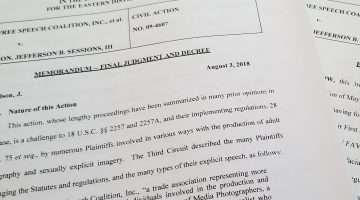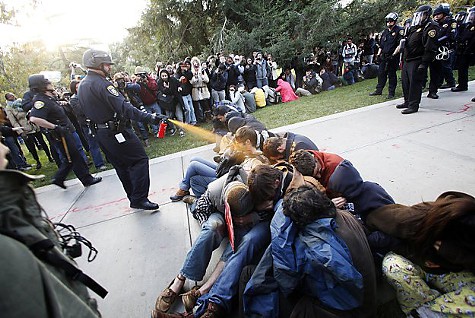 PHILADELPHIA – A bid to overturn Pennsylvania’s ban on pornography in prison reached a dead end Monday when the state Supreme Court ruled that jailed sex-offender Shannon R. Brittain, 34, who acted as his own attorney, had failed to “raise a genuine issue of material fact regarding the alleged invalidity of the pornography ban.”
PHILADELPHIA – A bid to overturn Pennsylvania’s ban on pornography in prison reached a dead end Monday when the state Supreme Court ruled that jailed sex-offender Shannon R. Brittain, 34, who acted as his own attorney, had failed to “raise a genuine issue of material fact regarding the alleged invalidity of the pornography ban.”
The law, adopted by the Department of Corrections in 2005, provided that “[i]n order to assist with rehabilitation and treatment objectives, reduce sexual harassment and prevent a hostile work environment, inmates will not be permitted to receive or possess pornography….”
The categories of material considered pornographic include “materials in which the purpose is sexual arousal or gratification; or the material contains nudity which means showing the human male or female genitals, pubic area or buttocks with less than a fully opaque covering, or showing the female breast with less than a fully opaque covering of any portion thereof below the top of the nipple (exposure through ‘see through’ materials is considered nudity for purposes of this definition).”
In 2006, the department futher clarified that “[i]f the publication or material has significant literary or educational value it may be approved on a case by case basis, taking into consideration educational programs the inmate is involved in, and the type of his/her offense (i.e., sexual offender).”
Still, Brittain, who was convicted of rape, filed suit two years ago, claiming that his First Amendment rights were being violated. “To back up his claim, he offered the statements of six other inmates that nudity did not affect their rehabilitation or treatment, cause them to sexually harass anyone or create a hostile work environment for prison workers,” the AP reported.
Monday, the Pennsylvania Supreme Court, the oldest appellate court in the nation (dating to 1684), determined that “Brittain’s submission of self-serving non-expert averments of fellow prisoners, which merely assert that they do not believe their rehabilitation and treatment are hindered by viewing pornography, were insufficient.”
Justice Max Baer, who wrote the majority decision, said that while it is conceivable that another inmate might be able to make a compelling argument against the prohibition on obscene materials, “the burden of doing so is high” and Brittain did not meet it.
Photo: Complex.com











No Comment